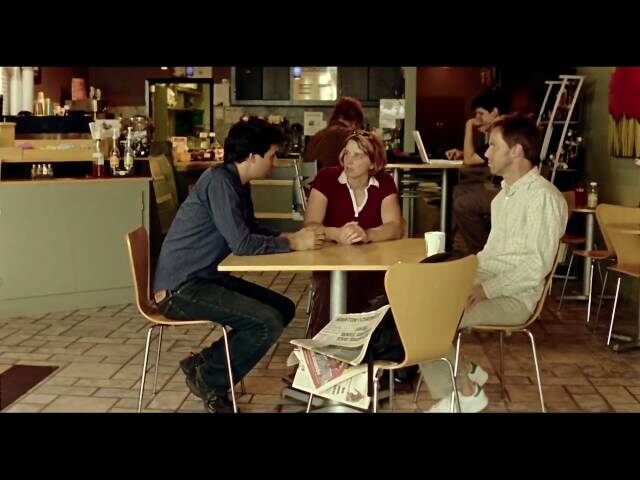Andrew Bujalski

Filmmaker Andrew Bujalski made his name with two films, 2002's Funny Ha Ha and 2005's Mutual Appreciation, which told tales of inarticulate post-grads fumbling through their 20s. Other films in a similar vein followed—made by like-minded directors such as Joe Swanberg and Kentucker Audley, often with overlapping casts and sometimes with Bujalski himself acting—and coalesced into the movement labeled "mumblecore." Bujalski's new directorial effort, Beeswax, follows two sisters in Austin, Texas, at what could be either a turning point in their lives or just another cluster of unremarkable days. One sister is on the precipice of being sued by her partner in a clothing-store business; the other might go teach in Africa—or not. The legal angle, though hardly Grisham-like, lends the film a sense of forward motion, with its characters tentatively embracing the responsibilities and challenges of adulthood. Through it all, Bujalski sharpens his comedy of passive-aggressive manners into a newer, more accessible point. In advance of Beeswax opening on Friday at Film Forum, The A.V. Club spoke with Bujalski about changing times, how he feels about his characters, and the questions people will never stop asking.
AV Club: You have been hesitant to offer any specific interpretations of, or guidelines for, the characters, motivations, or even the titles of your films. Do you have a clearly defined stance toward your characters?
Andrew Bujalski: I'm reluctant to pass judgment on the characters in the same way I'm reluctant to pass judgment on most of the people I meet. To a fault—and I believe people consider it a fault—I tend to assume that everybody has their reasons for doing things. When somebody angers me, I always really want to know what could possibly be going through their head. I feel like that's a curiosity that can be tormenting, but that's also how I try to build the films and characters. I have compassion for the characters, because I do think of them as real people, so I love all the characters in my films, even though they're often at cross-purposes with each other and not acting in their best interest. I haven't answered this question at all. I walked around it.
AVC: Your new film is a little faster and punchier than Mutual Appreciation is. Was that a stylistic goal?
AB: It's a really different kind of script, I think. There's so much exposition and information that has to be done as subtly as you can. That's always the misery of exposition. I've been trying to support myself writing commercial stuff, and I hate exposition. I'm always trying to avoid it and get around it, but this film has a lot of it. In the press kit we call it a legal thriller and that's something we have to take out of the kit now, you know, it could get us into trouble. In weird ways, it is built like the kind of movie where every scene has pieces of information in it that are meant to tantalize the audience, and you start to put it together and realize everything's connected and okay, here's the grand conspiracy. We have all that same information in this movie but the grand conspiracy isn't there. So this is like all the anxiety of a legal thriller without the payoff.
AVC: The characters in the film seem really ill-prepared to deal with lawsuits.
 Keep scrolling for more great stories.
Keep scrolling for more great stories.
